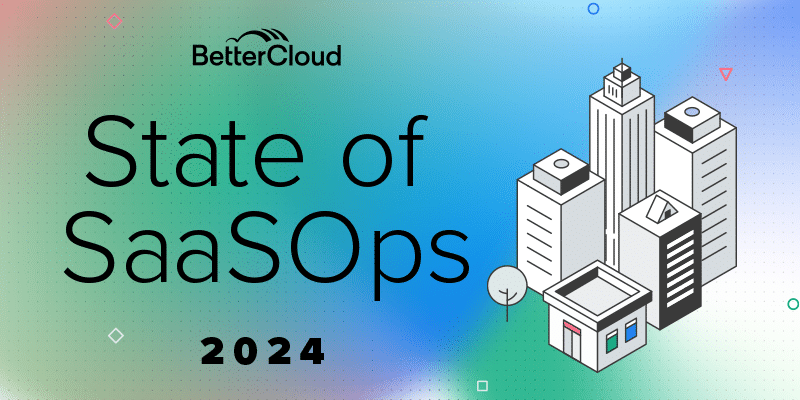How the IT Guy Became the “It Guy”: The Evolving Portrayal of Tech Professionals in Movies and Television
March 2, 2016
9 minute read

What do funnyman Jimmy Fallon and New York Giants wide receiver Odell Beckham Jr. have in common?
It might surprise you, but they’ve both played IT people on television.
IT and tech professionals are popping up everywhere in pop culture: television shows, movies, commercials, comics, and even memes. Their portrayals are typically limited to negative “nerd” tropes and stereotypes, but that’s slowly changing. In the past few years, they’ve achieved considerable social cachet. But how and why is this shift happening? To get some insight, we spoke with experts on psychology, technology, and pop culture.
MEET THE EXPERTS

Dr. George Nitzburg
Adjunct Assistant Professor, Columbia University Teachers College

Rob Weiner
Pop Culture Librarian, Texas Tech University

Dr. Lauren Rosewarne
Author and Senior Lecturer, University of Melbourne
First, let’s take a look at the most common portrayals in the media.
“Standard Nerds”
IT professionals in television and movies are often portrayed as the archetypal nerd. Over and over again, the characters are overweight, poorly dressed men. They are messy and disorganized. They wear glasses. They have the brains, but they’re socially awkward and struggle with social interactions. As a result, they often feel like caricatures or one-dimensional stock characters.
In the British sitcom The IT Crowd, Jen Barber is hired as the relationship manager for the IT department of Reynholm Industries. She asks her interviewer, “So the people I’ll be working with — what are they like?”
He curtly shouts: ”Standard nerds!”
Indeed, we see this trope across a wide swath of media:


The Office

The IT Crowd


The Muppets
That’s right — there’s even an IT guy in The Muppets. His name is Chip, and he’s purportedly a caricature of the show’s co-creator Bill Prady, who has a background in computer programming. On the show, Chip lacks people skills and struggles with basic social protocol. In one scene, he says to Miss Piggy, “You’re looking right at me — and I’ve been taught that when people are looking at me and talking to me, they’re talking to me.” With his egg-shaped head, he’s the literal embodiment of an egghead.
This socially inept “computer nerd” stereotype has been seared into our collective cultural consciousness for decades. The film Revenge of the Nerds put nerds on the map back in 1984, when a group of them — led by two computer programming students — triumphed over the jock fraternity, the Alpha Betas. And nine years later, in 1993’s Jurassic Park, we met Dennis Nedry, the corrupt, paunchy programmer in charge of networking the park’s computers. With his glasses, cluttered desk, and penchant for junk food, he fit the “nerd” stereotype to a T (and in fact, his last name, Nedry, is an anagram for “nerdy”).
Part of this nerd stereotype also includes arrogance, laziness, or rudeness — much of which stems from having to deal with stupid end users. One prime example is Jimmy Fallon’s sarcastic role as “Nick Burns, Your Company’s Computer Guy” in the recurring Saturday Night Live sketch that ran from 1999 to 2001.
Another example is Roy from The IT Crowd, who answers the phone like this:
Forgettable, Unappreciated, Unimportant
Despite their indispensable roles at companies in real life, IT professionals are often portrayed as nondescript characters that people barely tolerate and easily forget. In the US version of The Office, there’s a recurring joke that nobody can remember the IT specialist’s name. The employees call him “man,” “sport,” and even refer to him as “Glasses” in a later episode.
IT professionals are also physically shunned, their offices often tucked away in places where nobody can see them. In The IT Crowd, the two IT technicians (Moss and Roy) are relegated to the cluttered basement. The same goes for Milton Waddams, the mumbling milquetoast collator from Office Space (1999), who is eventually banished to Storage Room B.
Office Space painted a portrait of humdrum cubicle life, but more specifically, it captured a culture of IT workers who were solely cogs in a machine and not treated as valuable members of an organization. Though they held specialized knowledge, they were mistreated and widely unappreciated. Dennis Nedry also touches upon the same theme in this clip from Jurassic Park:
I am totally unappreciated in my time. You could run this whole park from this room, with minimal staff, for up to three days. You think that kind of automation is easy? Or cheap? You know anybody who can network eight connection machines and de-bug two million lines of code for what I bid for this job? Because if you can, I’d love to see them try.
Shifting Tides
Nowadays, the nerd stereotype still exists (somewhat) for on-screen IT professionals, but it’s not as derisive or steeped in reality as it was once was.
“All of us depend on IT to do our jobs in today’s world. They wield a tremendous amount of power,” says Rob Weiner, pop culture librarian at Texas Tech University. “They really are the gatekeepers now, whereas at one time, they were marginalized and thought of in a negative way. And that’s shifting.”
Experts say that our evolving relationship with technology has a lot to do with it.
“This shift in media portrayals shows our increasing comfort with technology adoption,” says Dr. George Nitzburg, an Adjunct Assistant Professor at Columbia University Teachers College who researches and teaches about the intersection of psychology and technology. “Simply put, since consumers and audiences use, value, and rely upon technology, it would likely be upsetting for them to view technologists in a negative light onscreen or off.”
“I think, basically, we’re all nerds now,” says Dr. Lauren Rosewarne, senior lecturer at the University of Melbourne and author of Cyberbullies, Cyberactivists, Cyberpredators: Film, TV, and Internet Stereotypes. “So with each of us only an arm’s length away from access to the Internet, this reality is (albeit slowly) coming to be depicted on screen.”
Going Mainstream
Television shows like The Big Bang Theory helped bring “geek culture” into the mainstream. But the fact that a sitcom like The IT Crowd could win multiple BAFTAs, International Emmys, and comedy awards says a lot about how far we’ve come in the past 10 years. The characters in The IT Crowd were still nerds, but they were likable, warm, and quirky. They were the protagonists of the show, not secondary characters whose only purpose was to be mocked. Graham Linehan, the show’s creator, said in an interview that he created the show because IT people are “geniuses. They’re working in offices and they’re barely noticed.”
“IT professionals have had increasingly positive media portrayals because the field of IT is no longer on the fringe of society,” says Nitzburg. “Information technology is becoming so popular that all different types of people are learning about it and pursuing careers in it, all of which helps to break stereotypes.”
Popular, mainstream athletes like Odell Beckham Jr. are even dipping their toes into the IT world. Check out this commercial where he plays an IT specialist:


Skyfall
In fact, Q is such a computer whiz that he might even represent the opposite end of the spectrum when it comes to IT stereotypes. Instead of being the lowly, everyday IT nerd, he was portrayed as a brilliant hacker, almost superhuman in his skills — but his hacking was so over the top that many viewers felt it was unrealistic and set impractical tech expectations.
Tech Luminaries
Tech pioneers like Steve Jobs have also helped shift the portrayal in a more positive direction. “An increasing amount of fame has also been bestowed upon technologists, first to Steve Jobs and Bill Gates and more recently to Mark Zuckerberg, Elon Musk, and others. These famous technologists do not fit any traditionally-negative stereotypes of IT professionals,” says Nitzburg. “These famous technologists are all iconoclastic figures with rebellious sensibilities, and media portrayals have correctly focused on their personas as disruptive rebels.”
Movies like 2010’s The Social Network also helped change the public perception: The characters are framed not as “nerds” but more as “rebels” and “geniuses.” 2012 also saw the rise of “brogrammer” (a portmanteau of “bro” and programmer”) culture at tech start-ups, which is depicted and satirized in HBO’s Silicon Valley.
 Sex Appeal
Sex Appeal
For a while, the trend was to poke fun at tech professionals and their (lack of) sex appeal. Internet users got a kick out of the pervy computer puns in the Overly Suave IT Guy meme and the Sexy Bill Gates meme. Back in 2014, a tech jobs website erected 50-foot billboards in San Francisco depicting real coders posing seductively, clad only in underwear (“Find the hottest tech talent,” they read).

“They only seem funny and quirky in a culture where normally IT guys are depicted as character worth mocking and maligning. More positively however, I think it also contributes modestly to a broadening of the idea of the ‘who’ of IT work,” says Rosewarne. “As pop culture presentations change and diversify, our idea of a typical IT worker starts to diversify and include women, and people of all ages and ethnicities and aesthetics.”
Women in IT: Holy Smoak!
Indeed, females are making more of an appearance as tech gurus.
“One of the most awesome IT people is Felicity Smoak in Arrow,” says Weiner. In the show, which is based on the DC Comics character Green Arrow, Smoak is an IT expert, hacker, and the CEO of Palmer Technologies. As the show’s protagonist and hero, she fights crime by decrypting phones and hacking into flash drives and databases. She’s a fiercely smart MIT graduate (“one of the most intelligent women featured on television today”), and brave and beautiful to boot, but she’s also charmingly awkward and has a habit of nervously rambling. Her quirks make her endearing and likeable.

Heroes vs. Villains
There is an interesting dichotomy with on-screen IT professionals. At times, they’re heroes — the valiant hacker who saves the day, the only one in the room who knows how to fix the problem. In 2014, Panasonic even produced a comic book series promoting their tablet, the Toughpad, featuring “Kevin the IT Guy” as the hero who saves the world from an alien invasion.
So what does this dichotomy say about us?
“Film and television reflects the public’s fears of new technology: Most people don’t really understand the internet or how computers work. Therefore, the health of our PC is in the hands of someone with knowledge we don’t have — knowledge that can save us or punish us,” says Rosewarne.
“The flip-side of relying on technologists is feeling vulnerable to them, so media portrayals about a malevolent hacker or data thief can provide a sense of catharsis about this,” says Nitzburg.
An Ongoing Evolution
So the next time you think about IT guys as “standard nerds,” think again. As technology evolves, so too will their on-screen portrayals and real-life roles. “The paradigm’s always changing. IT professionals are continuing to have that specialized knowledge; they continue to evolve and grow,” says Weiner. “It always pays to be nice to your IT people. It’s really important to appreciate what they do and why what they do is important.”






 Sex Appeal
Sex Appeal



